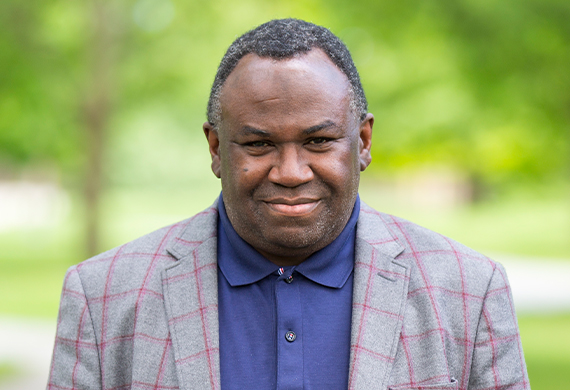Lisa Stephens’ Research on Diversity in Education Informs Her Work at Marist

September 18, 2018 — As Marist’s Pre-Health Advisor, Lisa Stephens has long held an interest in what helps students to succeed in graduate health professional programs. This spring, she earned a Doctor of Education degree from Northeastern University in a program known for its focus on social justice in education. During her course of study, the idea for her thesis became clear.
Stephens decided to conduct a research project to study students from under-represented populations who successfully matriculate into graduate health programs. She took a deep dive with the students to learn more about their experiences as undergrads—while those memories were still fresh. To find her subjects, she cast a wide net, reaching out to colleagues at other institutions and health profession graduate programs across the United States. She interviewed the students multiple times over the course of a few months—all had recently completed undergraduate degrees and were enrolled in graduate health programs. Six of her subjects were Latino/a, and one was Native American.
“I did not embark on this course of study with a diversity focus,” noted Stephens. “But it definitely developed during the time I was in this program. I was able to see issues in different ways.” She credits Northeastern’s EdD program’s focus on diversity and social justice for leading her on the path toward her thesis topic.
Smart Persistence
The research was eye-opening. “One commonality was that these students felt very alone,” said Stephens. “They saw cohorts of white and Asian students working together. For these students, there was no group. They might have Latino friends in school, but those friends were not science majors. Acquaintances and friends in their major were not likely to come from the same cultural background. That left them with a feeling of not quite fitting in anywhere.”
Most of Stephens’ subjects were first-generation college students, and some were immigrants. Stephens believes her work is very much a snapshot of what the immigrant experience is like for students in college. The students she interviewed spoke of loneliness, of white students not understanding their devotion to their families, and of feeling out of place. Many reported clear microaggressions. “One student recalled how a classmate said, ‘I’m glad you’re here to bring the curve down,’” said Stephens.
Despite the obstacles, these students ultimately succeeded. Stephens credits this, in part, to what she calls “smart persistence.”
“These students didn’t just persist in their tasks; they knew how to succeed,” Stephens emphasized. “One decided to switch from medical school to optometry school because it made more sense with his grades.” Even when things went wrong, these students kept pushing themselves. Another commonality among Stephens’ subjects was having a family member who was “a cheerleader, someone who kept insisting, ‘you can do it.’ Family support is enormous for these students,” noted Stephens.
Overwhelmingly, these students had a desire to return to their communities after graduate school to provide needed services. Many also wanted to encourage young people with backgrounds similar to their own to pursue higher education, science, and the health professions.

Bringing New Thinking to Her Work at the College
For Stephens, an ongoing impact of her research has been the practical application of what she has learned. As both a Lecturer of Chemistry and Pre-Health Advisor, her research findings have been valuable to her work with Marist students. “The research I conducted is already having an impact on my work at Marist,” she said. “In my teaching and advising I’m emphasizing the importance of being self-efficacious. I’m trying to reframe how students are making choices by getting them to see their gifts—not their deficits—and to set goals accordingly.”
On campus Stephens also works closely with the Center for Multicultural Affairs and sees connecting under-represented students with resources as a top priority.
She’s also looking ahead. This summer, for the first time, she oversaw a Pre-Health Pre-College program for high school students. Her hope is to find a donor to sponsor low-income students to attend next year. “I’m excited about engaging more as Marist continues to diversify its student body. There’s so much good we can do.”



